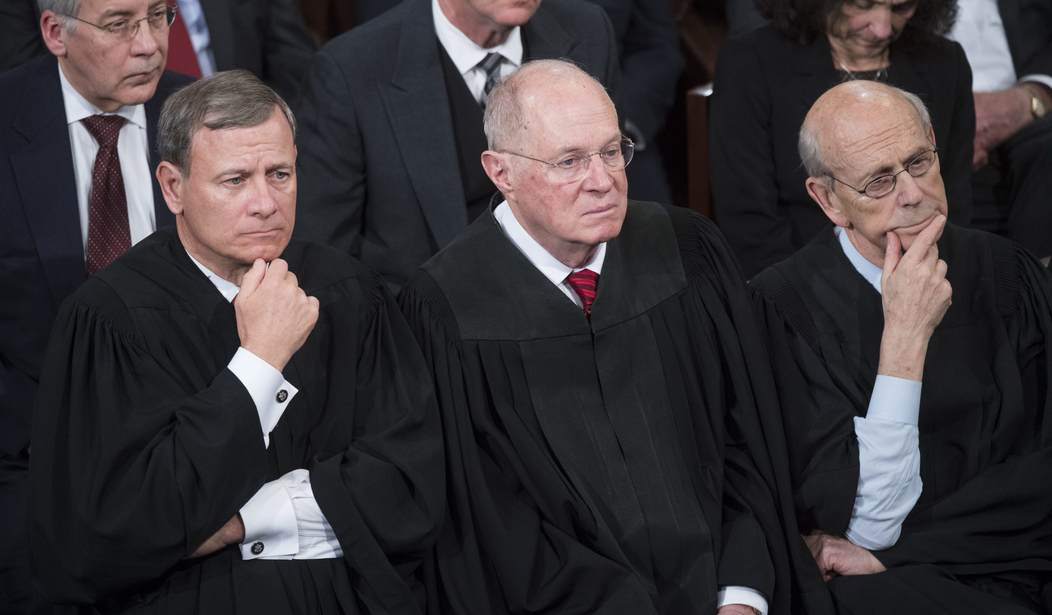WASHINGTON – Justice Anthony M. Kennedy, known as a champion for gay rights, is expected to play a key role in the outcome of the Supreme Court’s review of a Colorado baker’s decision to refuse service to a same-sex couple on religious grounds.
A senior director with the American Civil Liberties Union said Thursday that Kennedy has been distracted by the “deep faith” of Jack Phillips, the owner of Masterpiece Cakeshop, who refused to bake a wedding cake for Charlie Craig and David Mullins. Kennedy, an 81-year-old Republican, has been instrumental in scoring several key judicial victories for gay rights.
“I think (Kennedy is) going to be torn,” ACLU’s Deputy Legal Director Louise Melling said at the Center for American Progress. “Justice Kennedy will appreciate what struggle Jack Phillips faces from his particular standpoint. On the other hand, Justice Kennedy cares deeply about the LGBT community. He cares deeply about the dignity of being turned away, and he cares about harm in other contexts, as well.”
If there’s any doubt about where Kennedy stands, she said, all one has to do is look at the case involving Hobby Lobby, which won a Supreme Court exemption on religious grounds in 2014 from having to pay or administer contraceptives for its employees. She also cited the arguments of the Little Sisters of the Poor, who won a victory in a separate case after facing millions of dollars in fines for refusing to adhere to the Obamacare mandates.
In the Hobby Lobby case, Kennedy made a point of emphasizing that women will still get the care they need, and in a case with implications for the Little Sisters of the Poor, the court emphasized women’s access to coverage.
Phillips said in September that he opened his Lakewood, Colo., shop to “create my art, do the baking that I love and serve the God that I love in ways that would hopefully honor him.” He said that a wedding “signifies husband and wife uniting with Christ.” His legal counsel has also argued for his freedom of expression as an artist. Oral arguments for Masterpiece Cakeshop v. Colorado Civil Rights Commission have just been scheduled for Dec. 5, and a ruling could potentially come in June.
Dariely Rodriguez, director of the Economic Justice Project at the Lawyers’ Committee for Civil Rights Under Law, an organization formed in 1963 at the request of President Kennedy, said that the Masterpiece case is reminiscent of Newman v. Piggie Park Enterprises. In that 1968 case, the Supreme Court ruled against a South Carolina barbecue chain owner who had refused to serve three African-American customers on religious grounds.
The owner had argued that serving the customers would contravene the will of God, but the Supreme Court unanimously rejected those arguments in a ruling that said he violated Title II of the Civil Rights Act.
“We think that it’s imperative for groups across the country to speak up in support of Charlie and David to talk about the real threats that this case represents to public accommodation laws,” Rodriguez said.
Elise Boddie, a law professor at Rutgers University and former director of litigation for the NAACP Legal Defense & Educational Fund, said that Phillips’ argument is “just old wine in a new bottle. She said that the decision should be an easy one, as the court would have to “bulldoze through a lot of law” in order to side with Phillips. State law, she said, dictates that if you’re open for business, you need to serve everybody.
“It’s part of the systematic dismantling of protections for people who are perceived not to belong,” Boddie said. “For people who are perceived to be others, to lie outside our national space. You have to be vigilant against it.”
Rebecca Cokley, a dwarf who served as President Obama’s chief diversity officer, said that discrimination continues to run rampant today despite the narrative that the U.S. has moved past old sentiments. She said that she was harassed and called a midget just outside the White House, and she overheard an anesthesiologist recommending her tubes be tied while she was in labor for her second child.
“The idea that we should be past this to me is hysterically funny to me. It’s hysterically optimistic,” Cokley said. “The cake is a lie.”









Join the conversation as a VIP Member